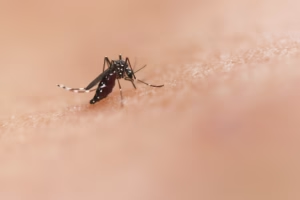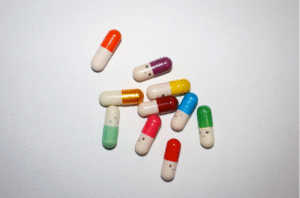Polycystic Ovary Syndrome (PCOS) is a common yet widely misunderstood hormonal disorder. PCOS is estimated to affect about 5 million reproductive-aged females in the United States. Many women go undiagnosed for some years due to its wide range of symptoms. In this post, we’ll understand what PCOS is, its causes, the role of insulin resistance, how hormone levels like the LH to FSH ratio factor in, potential complications, and how to help prevent or manage symptoms early.

What Is PCOS?
PCOS, or Polycystic Ovary Syndrome, is a condition that causes hormonal imbalances and problems with ovulation. While the name includes “cystic,” not every woman with PCOS has ovarian cysts. Symptoms vary from person to person but often include
- Irregular or missed periods
- Excess facial or body hair
- Acne
- Weight gain
- Difficulty in getting pregnant
- Loss of scalp hair
What Causes PCOS?
The exact cause of PCOS isn’t fully understood, but several factors may contribute:
- Genetics: PCOS tends to run in families.
- Hormonal Imbalance: High levels of androgens (male hormones) interfere with ovulation.
- Lifestyle: Diet, stress, and lack of physical activity can worsen symptoms.
- Inflammation: Low grade inflammation can also cause excess androgens in women thus contributing to PCOS.
The LH to FSH Ratio: A Key Hormonal Clue
LH to FSH ratio is a key marker in diagnosing PCOS:
- LH (Luteinizing Hormone) and FSH (Follicle-Stimulating Hormone) are essential for a healthy menstrual cycle and ovulation.
- In a typical cycle, the LH to FSH ratio is around 1:1.
- In many women with PCOS, this ratio becomes elevated — often 2:1 or 3:1, meaning LH levels are disproportionately higher.
This hormonal imbalance contributes to excess androgen production and disrupted ovulation. However, not all women with PCOS will show a high LH/FSH ratio, so it’s not a standalone diagnostic tool but a helpful piece of the puzzle.
Insulin Resistance and PCOS
A relatively high percentage of women with PCOS have insulin resistance — a condition where the body cells don’t respond well to insulin, causing the pancreas to produce more insulin. High insulin levels can trigger the ovaries to make more androgens, worsening symptoms like irregular periods, acne, and weight gain.
Lifestyle changes, particularly around diet and exercise, are key to improving insulin sensitivity and managing PCOS symptoms.
Complications of PCOS
If not managed, PCOS can lead to:
- Infertility
- Type 2 diabetes
- High blood pressure and heart disease
- Endometrial cancer
- Mental health challenges like anxiety and depression
Prevention by Lifestyle Modifications
Although PCOS can’t always be prevented, particularly when genetics play a role—adopting healthy lifestyle habits early on can significantly reduce your risk and help manage symptoms more effectively.
- Eat a balanced, low-glycemic diet
- Get regular exercise
- Maintain a healthy weight
- Manage stress levels
- Avoid excess sugar and processed foods
Even modest weight loss (5–10%) can significantly improve hormonal balance and menstrual regularity.
Medical Treatment
Medical treatments are often used to help regulate hormones, improve symptoms, and prevent complications. Treatment plans are usually personalized based on symptoms and whether or not pregnancy is a goal.
- Hormonal Birth Control: Help regulate periods and reduce acne.
- Metformin: Improves insulin sensitivity.
- Anti-Androgen Medications: Reduce symptoms like acne and unwanted hair. Typically used with birth control pills to avoid pregnancy as they can adversely affect the developing fetus.
- Clomiphene: Causes ovulation induction.
Always consult a gynecologist or endocrinologist before starting any treatment.
Conclusion
Living with PCOS can be challenging, but it’s also a manageable condition. Understanding how hormones like insulin, LH, and FSH interact can help you take charge of your health. If you suspect you have PCOS, talk to your healthcare provider. Early detection and lifestyle changes can make all the difference.










